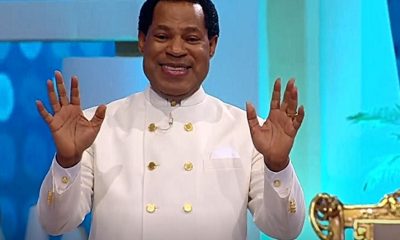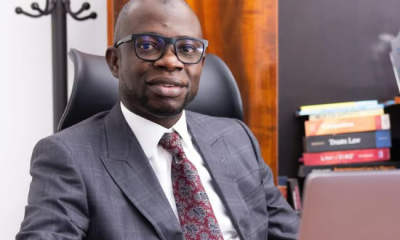For the greater part of Wednesday September 6, 2023, the Presidential Election Petitions Tribunal (PEPT) presented to Nigerians its verdict on the conduct of the February 25, 2023, presidential elections.
At the end of it all, the panel resolved that the petitioners were unable to prove any of the allegations they made against the party/candidates that had been declared winners of the election.
Whereas those who lost called the verdict a sham, the winners believed that no tribunal in the history of Nigeria has been as detailed and transparent as the one led by Justice Haruna Tsammani.
As usual, the case ended as a two-sided concern. It would however have been more useful to the nation if something was done to answer the intractable question for which election tribunals are set up, namely: to unravel the real winner of an election and uphold the unalloyed choice of the electorate.
In other words, public interest ought to be at the front burner of elections.
After several years of election petitions in Nigeria, our judiciary is yet to design an effective framework for arriving at verdicts that can really make majority of Nigerians feel and see that justice was done.
Instead, the verdict of last Wednesday was essentially an effort to prove that certain qualifications and nominations were in order.
Indeed, the tribunal went one step ahead to remind the nation that the regularity of a nomination is irrelevant because, it is a party affair that should end with the party.
If so, why were political parties, much earlier, placed under so much stress with rules on where, when and how nominations should be made?
There are critics who believe that those rules which were actually informed by the conduct of some political actors were discountenanced by our courts in their bid to work to the answer. Is this true?
Nigeria has never had free and fair elections because of numerous challenges; among them is what can simply be called insider abuses by electoral officials.
Except the conduct of such officials are placed under proper scrutiny during election petitions, we can never know the real winners of elections in Nigeria.
That was the real substance that many looked forward to the Tsammani-led tribunal to tackle. Instead, the tribunal assumed that figures credited to the Independent National Electoral Commission (INEC) were regular.
The veracity of those figures amidst claims of ballot snatching and mutilation of result sheets were not adequately interrogated.
Such a posture was probably informed by the popularity of the legal term ‘those who assert must prove.’
But considering that petitioners cannot apprehend and bring those who perpetuate electoral frauds to the tribunal, Nigeria may never go beyond the search for hitch-free elections.
During the proceedings of the tribunal, some of the petitioners claimed that INEC placed hurdles on their way to retrieve required evidence to prove their claims.
It would be unfair to doubt this allegation because it is a notorious fact. In Nigeria, it has become the norm for petitioners to cry in vain for help to the tribunal to assist them to access materials used by INEC for an election.
In the last governorship election in Osun state, for example, the then governor Gboyega Oyetola who was defeated in the election cried more than once to the relevant tribunal for help.
This also happened in the presidential election petition that has just ended. If INEC belongs to us all, it should not be allowed to take sides by immediately standing with a winner during an election petition as if it has something to hide.
The commission should also not be allowed to toy with court orders requiring it to bring certain information/documents to court – a conduct that is clearly regarded as contemptuous in other climes.
Bearing in mind that it is from tax payers’ money, that the electoral body is generously equipped to perform, it should not, after voting, become a revenue generating body that charges huge sums of money for releasing public information to contestants.
There is also the need to dissuade INEC from the practice of hoarding information under the guise that such data are in its state offices. Are those state offices not part of one INEC?
If INEC headquarters can access all the information it collated into a complete presidential election result from all the states, it should not become impossible to access materials when the request is from a party that participated in the election.
The point to be made is that in an election-troubled society, people can become more convinced that an election tribunal has done a good job, if in addition to asking petitioners to prove their case, it also requires the body that conducted the election to establish her thoroughness.
ALSO READ: PEPC verdict: Nigeria’s journey to perdition has fully begun
Otherwise, the criticism that the tribunal was unnecessarily too well disposed to INEC may leave room for people to suspect some collusion.
For example, not many were impressed with how the Tsammani-led tribunal validated INEC’s use of discretion concerning the transmission of election results.
During electioneering campaigns, INEC gave unambiguous assurances to the world at large especially in Nigeria and at Chatham House, London that votes would be transmitted real time and electronically from polling units.
According to Festus Okoye, the former INEC spokesman, “we canvased for the inclusion of the BVAS and the electronic transmission of results in the Electoral Act.
We therefore have a responsibility to keep faith with our own innovation aimed at the conduct of transparent election driven and propelled by technology.”
Let’s not also forget that Section 64 of the Electoral Act 2022 makes the transmission of polling unit results mandatory.
We agree that INEC has a discretion in determining the manner of transmitting election results which was what we thought it did when it opted for ‘electronic transmission.’
It was a discretion that was applauded by many who saw it as the game-changer in Nigeria’s problematic electoral process in which the collation of results has remained the elephant in the room.
Analysts in fact congratulated the commission for dismissing rumours that it might alter the discretion.
Many were therefore shocked when INEC reneged on its promise at the last hour and in the middle of the game without finding it necessary to inform those it had led to have faith in the commission.
It was probably more hurting to hear that the failure of INEC to keep faith was virtually commended by the tribunal.
Just before the tribunal began its work, the president of the Nigerian Bar Association, (NBA), Yakubu Maikyau, SAN, called for live broadcast of the proceedings.
He argued that such “live broadcasts will give citizens the opportunity to follow the proceedings, have better knowledge of the facts and an understanding of the reasoning behind decisions of the courts in those matters.”
On April 9, 2023, this column with a piece titled ‘Televising election petition proceedings in Nigeria’ beckoned on our judiciary to follow global practices by adopting open justice for election proceedings.
As a professional I had testified that Ghana and South Africa had been doing so for more than a decade. Neither my plea nor that of the NBA president persuaded our judiciary.
After barring Nigerians from watching the proceedings so as to truly follow the process, it organized a live telecast of its own 12-hour long commentary on the proceedings. How could such report have made great impact on the same people?
Rather than impress people, it made many to raise several questions on the report. For instance, the tribunal opted to see Abuja as one of the states of the federation, by suggesting that there was nothing special about Abuja.
But every state except Abuja has its own legislature and governor. Again, every state has 3 senators, Abuja has one, yet Abuja is not special?
There is also the argument that Abuja voters ought not to be allowed to have an edge over other voters in a presidential election, why then are Abuja voters allowed to be disenfranchised during governorship elections, thereby making other states have an edge over Abuja voters, are they second class citizens?
Questions such as these arise because technical justice can hardly satisfy many. Until we find a way to identify the real choice of the people in an election, instead of technicalities we shall continue to have definitions and counter definitions.


















